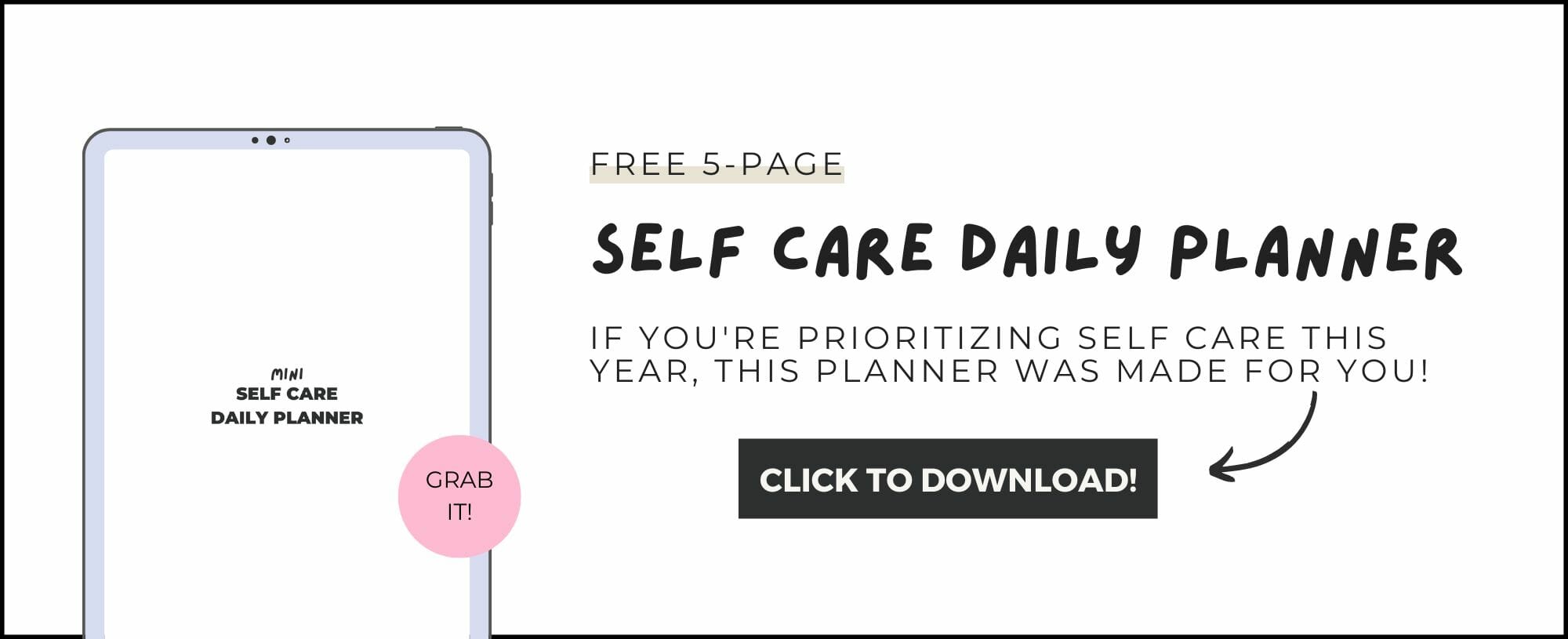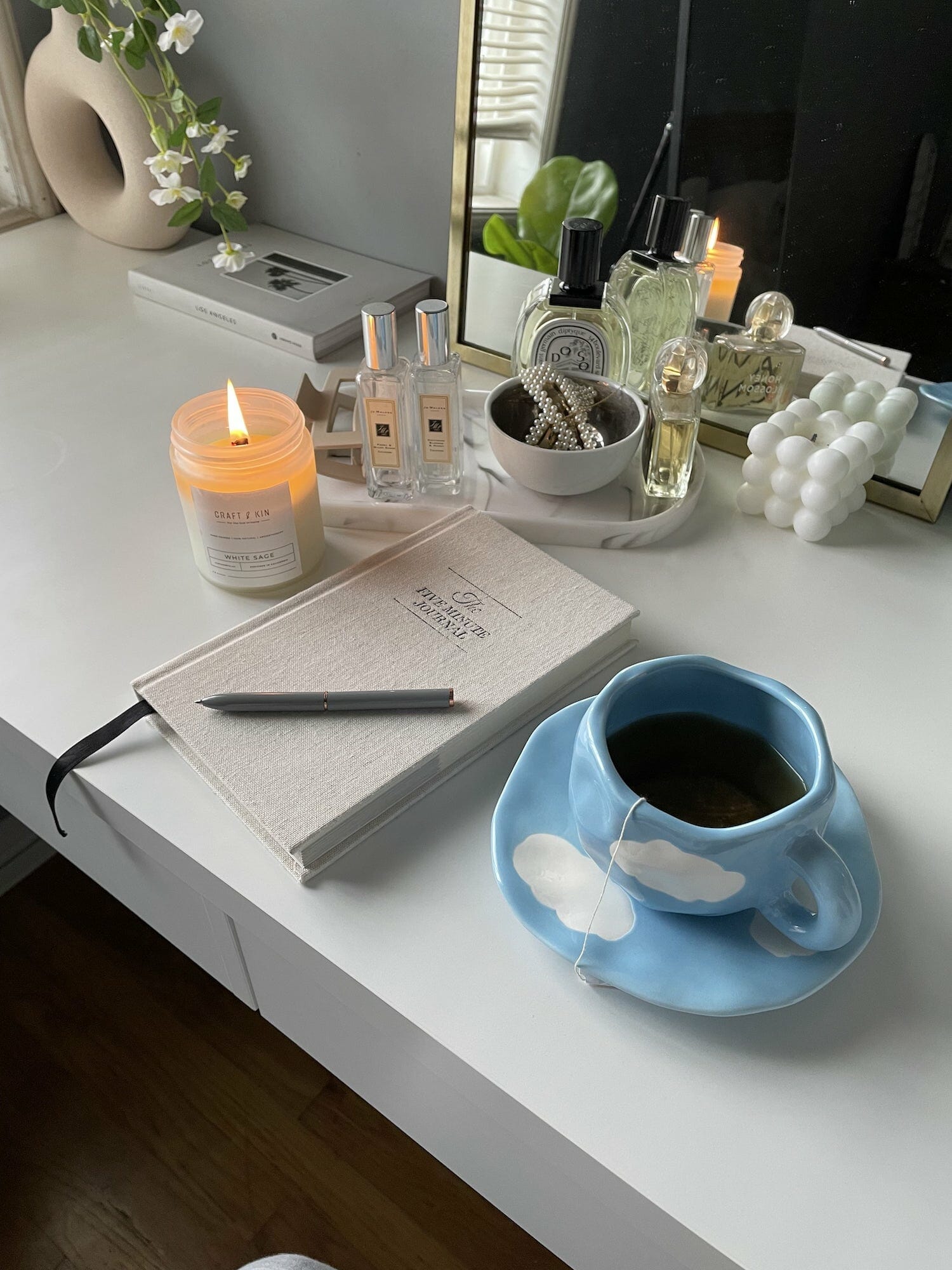9 Benefits of Journaling For Self Care (How To Get Started)
This post is all about the benefits of journaling for self care.
Journaling involves noting your thoughts and feelings – which can be done by pen and paper or online. This practice is the easiest (and most likely) cheapest way to improve mental health, so people with problems like anxiety, stress, and depression should develop a journaling habit.
The following are some benefits of journaling for self care individuals can get from keeping a record of their thoughts and emotions, as well as how to start and make the practice a part of their lifestyle.
What is the Main Benefit of Journaling?
While there are many benefits of journaling, the main advantage of developing a journaling habit is boosting health. There are many different types of journaling out there – gratitude journals, bullet journals, art journals, daily journals and so on. Which ever type of journaling you prefer, the main benefit you want out of it is peace of mind. It’s taking time to listen and understand what your own needs, thoughts and feelings are.
Is Journaling Considered Self Care?
Self care is anything one does to care for themselves physically, emotionally, or mentally. Because journalling takes care of the mental and emotional aspects, it is considered a self care activity. So it’s a good idea to set aside time for journaling.
How Do You Practice Self Care In a Journal?
It’s actually pretty easy; here’s how to start journaling for self care.
Establish a Daily Routine
Like any habit, journaling requires a routine to stick with it for the long term. Choosing a specific time and place in your schedule to journal is the only way to go. View it as a daily chore you must do. I prefer to journal in the morning; however, there’s no particular time and place is best for journaling, so everyone should pick what works best for them.
Practice Gratitude
Practicing gratitude can be beneficial, especially when one is going through difficult times. The best approach is to think about a few good things one appreciates and write them down. For instance, one could start by noting down three things they’re grateful for; it could be friends, business, health insurance, or even nature.
Use Journal Prompts
Even after journaling becomes a habit, one can experience days where they don’t know what to journal about. Journal prompts, which offer ideas about what to write, can help in such cases.
Some prompts that may give a clearer writing direction include questions like:
- What makes you happy?
- Describe your dream partner.
- Who is one person you admire and why?
One can create a prompt about anything because a journal is usually private.
READ: 177 Daily Self Care Journal Prompts For Personal Growth
Explore Your Feelings Through Expressive Writing
People tend to experience different feelings depending on their experiences. A journal should be a place where one expresses feelings without holding back. Take 15-20 minutes each day writing about your deepest thoughts, emotions and feelings that is related to an event that happened recently or a recent interaction you might have had. Do this for about 3-5 days. Letting out the negative thoughts and emotions will help create some form of relief.
Write Freely
Journals are not a form of academic writing and are only meant for personal use. Because there’s no particular expected outcome from journaling, one should try as much as possible to write freely. Enjoying true freedom when writing to express your own creative impulses improves your own self care.
There’s no wrong way to write so you should not worry about grammar, spelling, or punctuation while journaling. It’s also not necessary to be too logical, and if something scary, vulnerable, or unexpected comes to mind, you shouldn’t be afraid to write it down.
Benefits of Journaling For Self Care
There are so many amazing benefits of journaling daily and it can benefit everyone. Here’s what one stands to gain from keeping a journal.
1. It Improves Health and Well-being
Individuals who write down their deepest feelings, thoughts, and ideas:
- Experience lower blood pressure
- Visit the doctor a lot less (maybe never) because of stress-related issues
- Have greater well-being
- Enjoy having a better mood
People with anxiety disorders, symptoms of depression and other mental health conditions notice that writing about positive things like gratitude for a while helps with:
- Reducing stress
- Builds self-confidence
- Increasing overall well-being
Journaling also helps anxiety victims to build resilience and even eliminate the disorder.
2. Journaling Help to Fight Stress
Journaling is a great way to release stress when one feels overwhelmed. A journaling exercise that can help reduce stress is doing writing prompts. Check out these examples:
- Note down three things one is grateful for
- Write down 3 positive affirmations
- Write five wishes
- Jot down one of your favorite quotes and why
- Write one’s life story in a few words (not more than 10)
One may add more to the list, and with time they will realize stress levels tend to decrease, and they feel a lot better.
3. Journaling Let’s One Process Emotions
Many people never notice their emotions; if they do, they often try to suppress them. It’s not a healthy behavior because it will still pop up and affect one’s actions, which may sometimes happen without an individual’s awareness.
Journaling offers a safe space to process emotions. Writing down specific feelings you experience and your triggers make it easy to manage difficult emotions.
4. It Aids With Self-Reflection
Self-reflection can be achieved when journaling, which is crucial for personal growth. Individuals who set aside a chunk of their time every day to write about their dreams, goals, experiences, and aspirations get to understand their strengths, weaknesses, and values better. With journaling, one develops self-awareness, allowing one to make positive changes. Journaling can help people track progress in various aspects of their lives, learn from their mistakes, and celebrate their wins, leading to personal development and growth.
5. It’s Good For Enhancing Creativity and Boosting Memory
Developing a journaling routine can help enhance memory and creativity. Writing down ideas, thoughts, and experiences makes the body go through encoding, a process that reinforces our neural connections, which are essential for memory retrieval. While brainstorming ideas and solutions, one tends to get creative, and that’s an additional benefit of journaling. An individual can formulate new perspectives in their mind, making them think outside the box and also letting them unlock their creativity.
6. It’s Important For Setting Goals and Accountability
One great way to set goals is by journaling. Noting plans down on paper acts as a reminder of dreams, intentions, and aspirations. Similarly, journaling about milestones achieved and setbacks helps with accountability and motivation, critical aspects of staying on track. Moreover, individuals can review and change their strategies as they build towards their goals, creating a sense of purpose.
7. It Sharpens Communication Skills
Journaling improves one’s ability to express ideas and thoughts, enhancing communication skills. Through journaling, people can practice writing, develop a unique writing style, and experiment with various narrative techniques. Furthermore, journaling allows self-expression, which can also improve communication skills. People who journal regularly have a strong command over language, so they can articulate their thoughts and communicate flawlessly with others.
8. It Helps One Understand the Next Step to Make
Journaling allows one to write down the feelings and thoughts about a situation they are going through, which is the first stage in understanding the best route to take. Upon reflecting, one may start to feel that their emotions are communicating something; for instance, anger could mean one needs to avoid certain toxic people, or sadness could suggest that one reaches out to someone they trust for support.
Understanding one’s emotions, and concerns as well as identifying negative behaviors paints a clear picture of an individual’s needs. Just noting some pros and cons in a few words can offer more insight into one’s needs compared to countless thoughts lingering in the mind.
9. It Promotes Self Discovery
Humans are complex beings and can be likened to a puzzle. People get to discover something new about themselves every day. Journaling provides a calm state where one can reconnect and rediscover themselves. It leads to knowing more about one’s fears, preferences, pains, dreams, and favorites.
Because people evolve daily, journaling is a great way to experience and notice these changes, leading to a better understanding of oneself.
Tips to Guide with Journaling
Like any other meaningful endeavor, journaling requires a strategy to make it effective. Here are tips anyone can use to develop a sustainable habit.
Start Small
Individuals who are just starting should not push themselves too hard. Starting with massive sweeping changes can feel overwhelming, which could make one give up. Instead, taking micro-steps is advisable, where one can initially journal for about 5 minutes daily. Gratitude journaling, where you write 3 things you’re grateful for each day, is an easy way to start journaling.
Avoid Complicated Tools
Don’t use complicated tools. A blank doc on the personal computer, a simple notebook, pen, or a note-taking application downloaded on the phone or iPad is enough to note down thoughts, ideas, emotions, fears, goals, and other things one would want to include in a journal.
Write Down Everything
It’s best to let it all out when journaling. People may tend to censor some of their thoughts and feelings, which is not a good idea. One is allowed to be brutally honest and even petty while journaling. After all, a personal journal is a safe space, so one can note anything on their mind.
Stick to a Particular Time
People are always busy with a lot going on in their lives, which could make journaling at the same time every day difficult. But sticking to a specific journaling time helps a lot. For instance, one can note down their thoughts the first thing they get out of bed in the morning.
The best way to stick with a specific journaling time is to connect the habit with another activity. For example, one can always journal before breakfast, while drinking coffee, bedtime prayer, or after the evening news. It makes it a lot easier to keep and maintain a daily journaling practice.
Don’t Revisit Painful Entries
Revisiting a difficult situation’s details can negatively affect an individual. It can stir up negative emotions. Suppose the situation is recurring in the mind, or one feels it’s not over yet. In that case, they can focus on what they appreciate, the lessons acquired, and how to apply the knowledge gained from the situation.
The Bottom line
Journaling can improve one’s life significantly, so you should incorporate it into your lifestyle, to enjoy the benefits of journaling. You don’t require much time to journal (10 minutes a day is enough), and you can start with whatever you have; for instance, a cheap notebook and a pen are enough to note down what’s on your mind. What makes it even better is that you’re free to do it anyhow, as it’s not formal.
I hope you enjoyed these benefits of journaling for self care. Are you ready to start journaling? Share your thoughts by commenting below!





